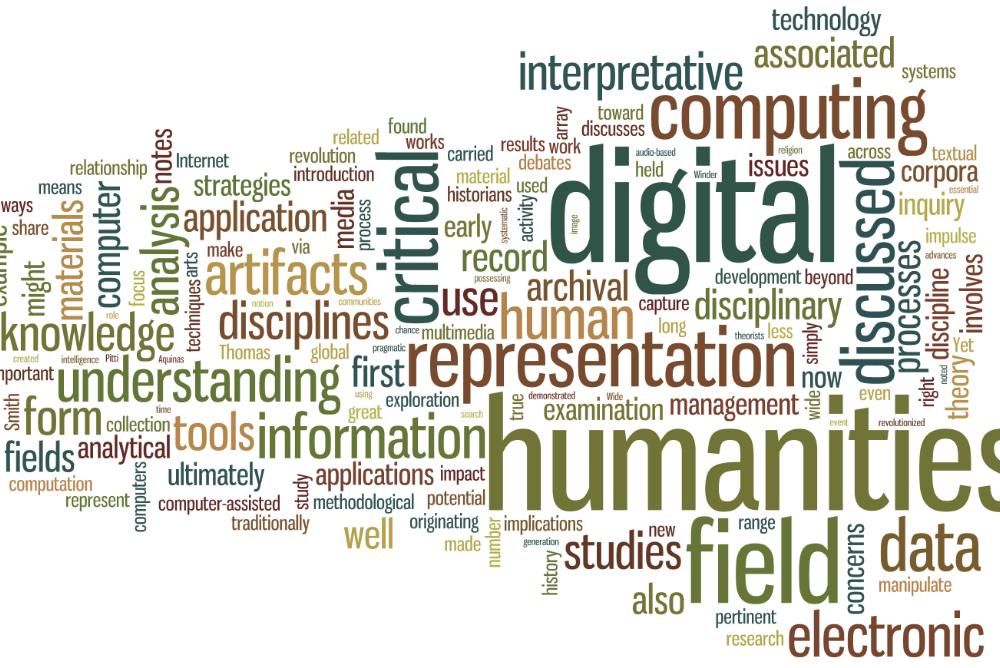Whole of Government Events
[PAST EVENT] What the Coming Digital Revolution Means for Social Science Methods
Access & Features
- Open to the public

What the Coming Digital Revolution Means for Social Science Methods: A Debate with Stephen Hanson and Andrew Moravcsik.
Stephen E. Hanson is the Vice Provost for International Affairs, the Director of the Wendy and Emery Reves Center for International Studies, and the Lettie Pate Evans Professor in the Department of Government at William & Mary. He served from 2009-2011 as the Vice Provost for Global Affairs, and from 2000-2008 as the Director of the Ellison Center for Russian, East European, and Central Asian Studies at the Jackson School of International Studies, at the University of Washington, Seattle. Hanson is the author of Post-Imperial Democracies: Ideology and Party Formation in Third Republic France, Weimar Germany, and Post-Soviet Russia (Cambridge University Press, 2010) and Time and Revolution: Marxism and the Design of Soviet Institutions (University of North Carolina Press, 1997), and a co-author (with Richard Anderson Jr., M. Steven Fish, and Philip Roeder) of Postcommunism and the Theory of Democracy (Princeton University Press, 2001). His numerous articles analyzing postcommunist Russia in comparative perspective, the role of ideology in institutional change, and qualitative methods for social science research have appeared in such journals as Comparative Political Studies, Comparative Politics, Canadian Journal of Political Science, The Annals of the American Academy of Political and Social Science, Post-Soviet Affairs, Communist and Post-Communist Studies, and East European Politics and Societies. He has also taught as a Visiting Associate Professor of Government at Harvard University, a Visiting Scholar at the Department of Politics and International Relations at Oxford University, and a Research Scholar at the Kennan Institute at the Woodrow Wilson International Center for Scholars in Washington, D.C. Hanson has served on the editorial or advisory boards of a number of journals, including Slavic Review, Russian Politics, Comparative Politics, Comparative Political Studies, and Demokratizatsiya. He has been invited to lecture at a number of prestigious academic and policy-oriented institutions, including the Aspen Institute, the Institute for the Economy in Transition (Moscow), Hamburg University, the University of Strathclyde (Glasgow), Yale University, Brown University, the Harriman Institute of Columbia University, the University of California at Berkeley, Indiana University, University of Notre Dame, the University of Chicago, and George Washington University’s Elliott School of International Affairs.
Hanson received his B.A. from Harvard University (1985) and his Ph.D. from the University of California, Berkeley (1991).
Andrew Moravcsik is Professor of Politics and Director of the European Union Program at Princeton University. He has authored over 125 scholarly publications, including four books, on European integration, international relations theory, qualitative/historical methods, human rights, international law and organization, and other topics. The American Historical Review called his history of the European Union, The Choice for Europe, "the most important work in the field.” He developed “active citation” (ATI), an increasingly popular digital transparency format for qualitative social science. The National Science, Ford, Fulbright, Olin, Krupp and German Marshall Foundations, the Institute for Advanced Study, and various universities and institutes, have supported his research. He has published over 150 opinion pieces and policy analyses, and currently serves as Book Review Editor (Europe) at Foreign Affairs. In the policy world, he served as a US government trade negotiator, special assistant to the Deputy Prime Minister of Korea, press assistant at the European Commission. His daily commentary on classical music, particularly opera, has appeared in The Financial Times, New York Times, Opera and elsewhere, and his scholarship on the sociology of music has appeared in Opera and Opera Quarterly. He holds a BA from Stanford, an MA from Johns Hopkins (SAIS), and a PhD from Harvard University, as well as having attended German and French universities.
Contact
[[international]]
